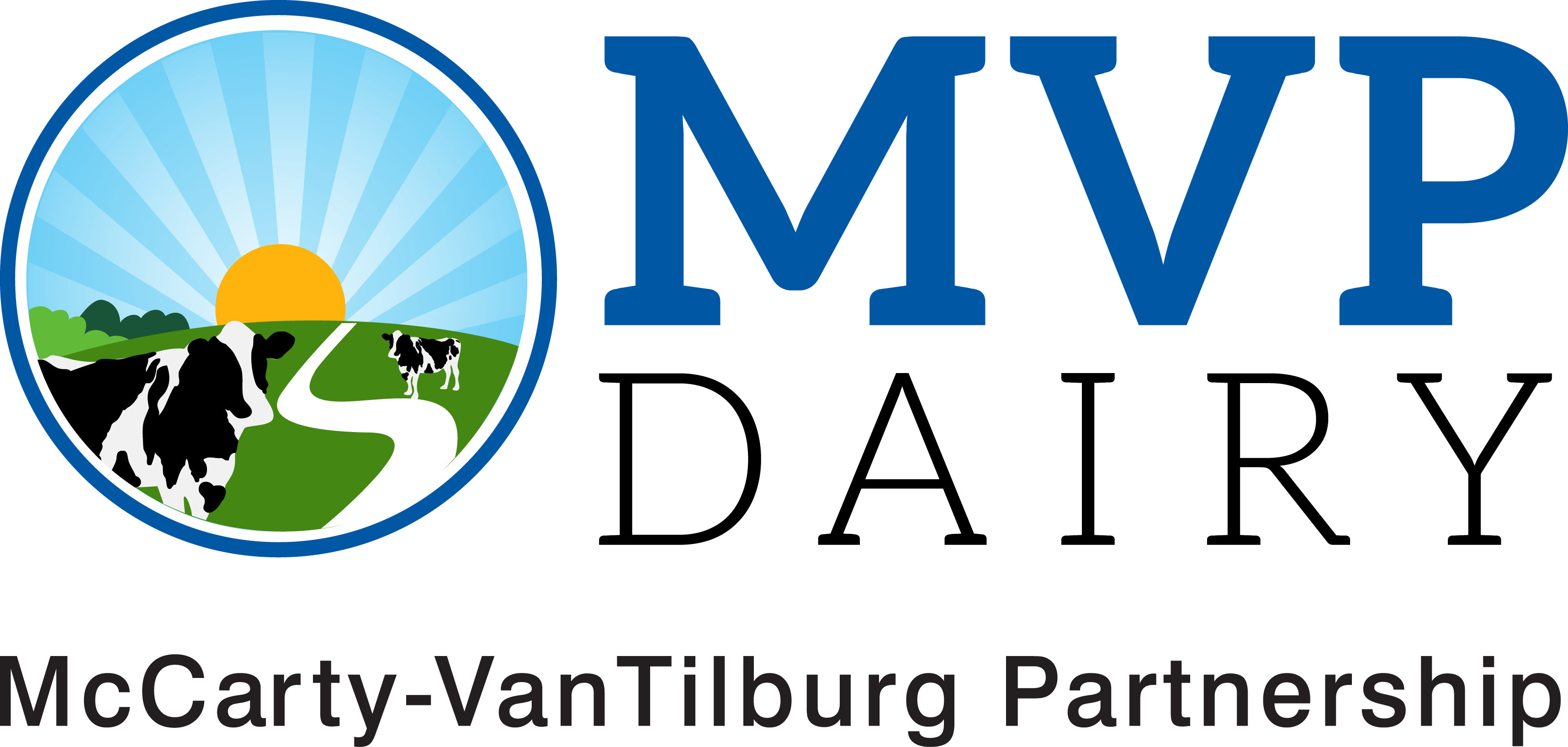

MVP Dairy, LLC

Ohio, United States
March 2020
Mixed Farming
Agriculture/Growers
United States
MVP Dairy, LLC is a partnership between two, fourth-generation farm families, the McCarty Family of Kansas and the VanTilburg Family of Ohio. Together, MVP Dairy is a multi-family dairy farm striving to farm for a better world. As the first Certified B Corp dairy farm, MVP is leading the way in sustainable and regenerative farming practices while operating humanely and transparently. The dairy features the best in dairy innovation and is home to the Dairy Learning Center, a non-profit organization that is open to the public to share a behind the scenes look at how milk is produced. All milk from MVP Dairy is Non-GMO project verified and is a milk supplier for Danone North America’s non-gmo product lines. MVP’s overall mission is to create wholesome products in a sustainable manner. Using best management practices, they work to achieve the utmost in animal welfare, environmental stewardship, sustainable communities and the creation of a safe, rewarding work environment.
Overall B Impact Score
Governance 17.7
Governance evaluates a company's overall mission, engagement around its social/environmental impact, ethics, and transparency. This section also evaluates the ability of a company to protect their mission and formally consider stakeholders in decision making through their corporate structure (e.g. benefit corporation) or corporate governing documents.
What is this? A company with an Impact Business Model is intentionally designed to create a specific positive outcome for one of its stakeholders - such as workers, community, environment, or customers.
Workers 13.1
Workers evaluates a company’s contributions to its employees’ financial security, health & safety, wellness, career development, and engagement & satisfaction. In addition, this section recognizes business models designed to benefit workers, such as companies that are at least 40% owned by non-executive employees and those that have workforce development programs to support individuals with barriers to employment.
Community 10.6
Community evaluates a company’s engagement with and impact on the communities in which it operates, hires from, and sources from. Topics include diversity, equity & inclusion, economic impact, civic engagement, charitable giving, and supply chain management. In addition, this section recognizes business models that are designed to address specific community-oriented problems, such as poverty alleviation through fair trade sourcing or distribution via microenterprises, producer cooperative models, locally focused economic development, and formal charitable giving commitments.
Environment 60.3
Environment evaluates a company’s overall environmental management practices as well as its impact on the air, climate, water, land, and biodiversity. This includes the direct impact of a company’s operations and, when applicable its supply chain and distribution channels. This section also recognizes companies with environmentally innovative production processes and those that sell products or services that have a positive environmental impact. Some examples might include products and services that create renewable energy, reduce consumption or waste, conserve land or wildlife, provide less toxic alternatives to the market, or educate people about environmental problems.
What is this? A company with an Impact Business Model is intentionally designed to create a specific positive outcome for one of its stakeholders - such as workers, community, environment, or customers.
Customers 0.7
Customers evaluates a company’s stewardship of its customers through the quality of its products and services, ethical marketing, data privacy and security, and feedback channels. In addition, this section recognizes products or services that are designed to address a particular social problem for or through its customers, such as health or educational products, arts & media products, serving underserved customers/clients, and services that improve the social impact of other businesses or organizations.